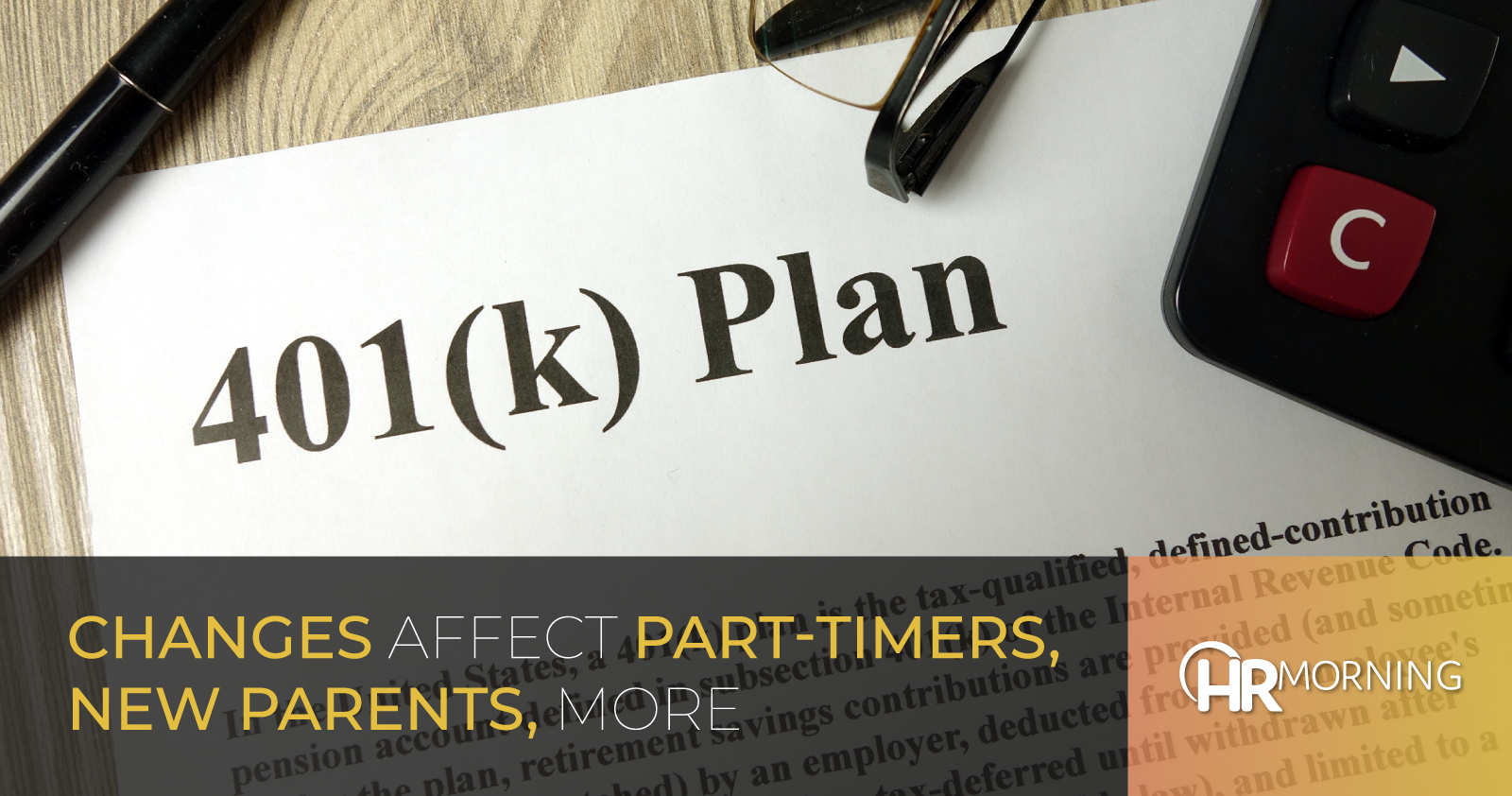Finally, the IRS has issued guidance for employers on implementing the Setting Every Community Up for Retirement Enhancement (SECURE) Act, which became law in Dec. 2019.
The SECURE Act made significant changes to employer-sponsored retirement plans, including allowing coverage for part-time employees, as well as penalty-free withdrawals for the birth or adoption of a child.
The law also enables small businesses to join together, regardless of any connection, to create 401(k) plans for their employees.
On Sept. 2, 2020, the IRS issued Notice 2020-68, which includes the following SECURE Act guidelines for employers.
Coverage for part-timers
Effective for plan years beginning after Dec. 31, 2020, employees who work either one full year (with 1,000 hours) or three consecutive years (of at least 500 hours each) are eligible for their employer’s retirement plan benefits.
The IRS notice clarifies employers can exclude 12-month periods beginning before Jan. 1, 2021. Also, employers can exclude long-term, part-time workers for years of service before the employee turned 18, as well as any break in service – that is, an employee who didn’t complete at least 500 hours in a year.
The earliest firms will be required to enroll a part-time worker is in 2024, but they’ll need to start tracking and retaining records for hours worked beginning Jan. 2021.
Previously, employers didn’t have to offer a 401(k) to employees who worked less than 1,000 hours a year.
Eligibility rules relating to matching contributions haven’t changed, so employers aren’t required to make matching contributions for these part-time employees. And they can still be excluded from profit-sharing contributions, says the IRS.
Birth or adoption withdrawals
As of Jan. 1, 2020, the SECURE Act allows penalty-free withdrawals for birth or adoption expenses. However, employers may, but aren’t required to, allow these withdrawals.
If an employer elects to do so, workers can take withdrawals from retirement plans of up to $5,000 for associated costs within a year of a birth or adoption.
The IRS notice clarifies that the $5,000 distribution applies separately to each parent for every child. Also, the distribution can only be provided to an employee if they include the name, age and tax ID number on their tax return for the taxable year in which the distribution is made, says the IRS.
Auto-enrollment tax credit
To encourage employers to set up automatic enrollment, the SECURE Act provides employers (with fewer than 100 employees) a $500 tax credit per year for up to three years.
This credit also applies to employers that established auto-enrollment less than three years prior to the new law and to every employer that participates in a multiple employer plan, according to the IRS.
Multiple employer plans
The SECURE Act allows unrelated small employers to pool resources to create multiple employer plans (MEPs), thus reducing costs and administrative duties. Employers that join a MEP can file a consolidated Form 5500 (IRS and DOL will issue a new form by Jan. 1, 2022), as well as a combined audit report.
The new law also protects employers from penalties should other members violate fiduciary rules (e.g., by failing to transfer employee contributions to the plan on time).
SECURE Act deadlines
The deadline for amendments reflecting the new SECURE Act revisions is the last day of the plan year beginning on or after Jan. 1, 2022. The IRS will continue to issue additional guidance under the SECURE Act “as appropriate.”


